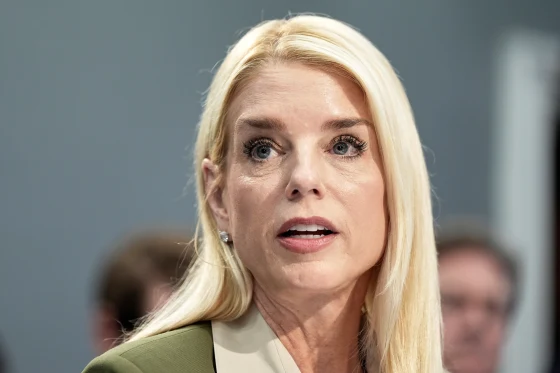The U.S. Department of Justice (DOJ) has launched a significant investigation into doctors and clinics offering transgender medical procedures to children, issuing over 20 subpoenas as part of a broader push by the Trump administration to restrict gender-affirming care for minors. Announced on July 10, 2025, the DOJ’s actions focus on allegations of health care fraud, false statements, and other potential violations, though specific details about the recipients or the information sought remain undisclosed.
Attorney General Pam Bondi, a vocal critic of gender-affirming care, stated, “Medical professionals and organizations that mutilated children in the service of a warped ideology will be held accountable by this Department of Justice.” This follows her April 22 memo, which directed federal prosecutors to investigate and prosecute cases involving “gender-affirming care,” describing such procedures as harmful and often regretted by young patients later in life. The memo also flagged potential violations by drug manufacturers and distributors for misleading claims about puberty blockers and hormones used in transgender treatments.
The DOJ’s efforts align with other federal actions. The FBI has called for public tips about hospitals or practitioners performing transgender surgeries on minors, while the Centers for Medicare and Medicaid Services (CMS) sent letters to nine hospitals in May, requesting information on medical interventions for gender dysphoria in children. These moves stem from a January executive order by President Trump to end federal support for transition-related care for those under 19, though parts of the order were blocked by federal courts.
On the same day as the DOJ’s announcement, the Federal Trade Commission (FTC) held a workshop examining “unfair or deceptive” practices related to transgender procedures for minors. The event featured detransitioners—individuals who underwent gender-affirming procedures as teens and later regretted them—along with doctors, psychologists, and policy experts critical of such care. Claire Abernathy, a 20-year-old detransitioner, shared her experience: “My doctors didn’t tell me that hormones would cause permanent side effects. They hid those effects from me.” Critics like child psychologist Miriam Grossman argued there’s no evidence to support the idea of being “born in the wrong body,” calling it misleading to consumers.
However, the FTC workshop faced backlash for its one-sided perspective. Nearly 150 FTC employees signed a statement arguing the event overstepped the agency’s role by interfering in doctor-patient relationships. Former FTC employee Eileen Harrington criticized the workshop’s lack of diverse viewpoints, noting that the public was barred from attending in person and only critics of transgender care were invited to speak. In response, FTC spokesperson Joe Simonson defended the event, citing death threats against panelists and emphasizing the focus on those who felt “abused and mutilated” by medical professionals.
The debate over gender-affirming care remains heated. Major medical organizations, including the American Medical Association and the American Academy of Pediatrics, support access to such care for minors, arguing it’s evidence-based and beneficial for those experiencing gender dysphoria—the distress from a mismatch between one’s gender identity and assigned sex at birth. Yet, since 2021, about half of U.S. states have passed laws restricting or banning these treatments for minors, with some classifying them as felonies. In June, the U.S. Supreme Court upheld Tennessee’s ban on puberty blockers and hormone therapy for teens, ruling it does not violate the Constitution’s equal protection clause.
The DOJ’s subpoenas and the FTC’s workshop signal a growing federal effort to scrutinize transgender care for minors, reflecting the Trump administration’s broader agenda to limit transgender rights, including barring trans athletes from women’s sports and restricting gender marker changes on passports. As these investigations unfold, they raise critical questions about medical ethics, patient autonomy, and the role of government in regulating health care decisions for young people.
